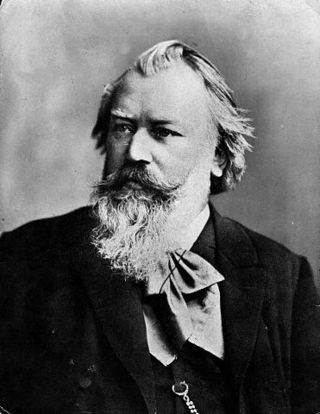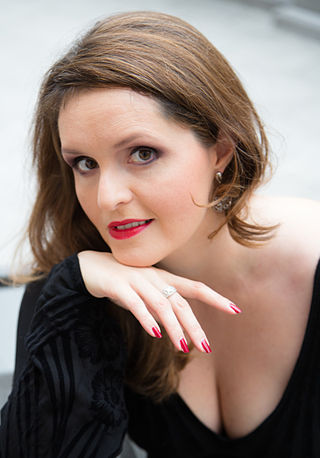External links
| International | |
|---|---|
| National | |
| Artists | |
| Other | |
The Barylli Quartet was a celebrated Austrian string quartet classical musical ensemble. It was first brought together in Vienna during the War by Walter Barylli, Konzertmeister of the Vienna Philharmonic Orchestra from 1939, but was re-founded in 1945. The reformed quartet actually appeared in public performance only from 1951 to 1960. [1] In that period it was the 'home' quartet of the Vienna Musikverein.
Many of the famous HI—FI Westminster Records recordings are with Emanuel Brabec.
Walter Barylli (born in Vienna in 1921-2022) [2] studied at the Vienna Music Academy with the Philharmonic Konzertmeister Franz Mairecker, and in Munich with Florizel von Reuter. In 1936 Barylli gave his first public performance as a soloist in Munich, and made his first gramophone recordings in Berlin. Over the next two years he made an international career as a soloist: but realizing the difficulty of a career as a travelling soloist in the turmoil of the late 1930s he instead won a place at the Vienna Philharmonic Orchestra, of which he became Konzertmeister in 1939. The quartet was first formed from leading members of the Vienna Philharmonic, during the war. It was then reformed in 1945, but its work in public performance was mainly confined to the period 1951-1960.
Closely associated with the Vienna Musikverein, their work was principally with classic repertoire such as Beethoven, Mozart, Schubert, Schumann and Brahms. They gave many concerts in Europe and overseas. [3] Among their various recordings [4] are a complete Beethoven cycle for Westminster Records and a near-complete Mozart cycle. They performed at the Salzburg Festival, from which at least two live concerts (from 1956, Mozart Quintet with Antoine de Bavier, [5] and 1958, of Beethoven, Schubert and Hindemith [6] ), have also survived as recordings. Their principal collaborations in chamber music were with Antoine de Bavier, Edith Farnadi, Jörg Demus, Paul Badura-Skoda and the violist Wilhelm Hübner.
Emanuel Brabec, the group's cellist in 1958, taught at the Vienna Academy and was teacher of Nikolaus Harnoncourt. [7]

Bruno Walter was a German-born conductor, pianist and composer. Born in Berlin, he escaped Nazi Germany in 1933, was naturalised as a French citizen in 1938, and settled in the United States in 1939. He worked closely with Gustav Mahler, whose music he helped to establish in the repertory, held major positions with the Leipzig Gewandhaus Orchestra, New York Philharmonic, Concertgebouw Orchestra, Salzburg Festival, Vienna State Opera, Bavarian State Opera, Staatsoper Unter den Linden and Deutsche Oper Berlin, among others, made recordings of historical and artistic significance, and is widely considered to be one of the great conductors of the 20th century.

Johann Nikolaus Harnoncourt or historically Johann Nikolaus Graf de la Fontaine und d'Harnoncourt-Unverzagt; was an Austrian conductor, particularly known for his historically informed performances of music from the Classical era and earlier. Starting out as a classical cellist, he founded his own period instrument ensemble, Concentus Musicus Wien, in 1953, and became a pioneer of the Early Music movement. Around 1970, Harnoncourt began conducting opera and concert performances, soon leading international symphony orchestras, and appearing at leading concert halls, operatic venues and festivals. His repertoire then widened to include composers of the 19th and 20th centuries. In 2001 and 2003, he conducted the Vienna New Year's Concert. Harnoncourt was also the author of several books, mostly on subjects of performance history and musical aesthetics.
The Alban Berg Quartett was a string quartet founded in Vienna, Austria in 1970, named after Alban Berg.
Willibald Karl Boskovsky was an Austrian violinist and conductor, best known as the long-standing conductor of the Vienna New Year's Concert from 1955 to 1979.

The Double Concerto in A minor, Op. 102, by Johannes Brahms is a concerto for violin, cello and orchestra. The orchestra consists of 2 flutes, 2 oboes, 2 clarinets, 2 bassoons, 4 horns, 2 trumpets, timpani and strings.
Concentus Musicus Wien (CMW) is an Austrian baroque music ensemble based in Vienna. The CMW is recognized as a pioneer of the period-instrument performance movement.

The Fine Arts Quartet is a chamber music ensemble founded in Chicago, United States in 1946 by Leonard Sorkin and George Sopkin. The Quartet has recorded over 200 works and has toured internationally for 77 years, making it one of the longest enduring major string quartets. In its history, the Quartet has had two leaders: Leonard Sorkin, from 1946 to 1981, and Ralph Evans, from 1982 to the present. Its current members are violinists Ralph Evans and Efim Boico, violist Gil Sharon, and cellist Niklas Schmidt.
The Arnold Schoenberg Choir is a Viennese/Austrian choir which was founded 1972 by Erwin Ortner, who is still its artistic director. The choir has a high reputation both among conductors and among critics and the musical scene in general. All members of the choir have broad experience and expertise in vocal music; most of them have graduated from or are currently studying at the Vienna University of Music and Performing Arts. The choir is named after Viennese composer Arnold Schoenberg.
Ľubica (Ľuba) Orgonášová is a Slovak operatic soprano, who is particularly known for her interpretation of Mozart roles.
Till Fellner is an Austrian pianist.

The Vienna Singverein is the concert choir of the Vienna Musikverein with around 230 members. It is regularly requested by top orchestras and conductors for large and varied projects.
Antoine-Pierre de Bavier, also known as Antoine de Bavier and Anton von Bavier was a twentieth-century Swiss clarinettist and orchestral conductor.

Walter Barylli was an Austrian violinist who had a distinguished career based in his native Vienna, as Konzertmeister of the Vienna Philharmonic, founder and leader of the Barylli string quartet, and professor of violin at the Vienna City Academy.
Leonard Hokanson was an American pianist who achieved prominence in Europe as a soloist and chamber musician.
Kurt Equiluz was an Austrian classical tenor in opera and concert. He was a member of the Vienna State Opera as a tenor buffo from 1957 until 1983, remembered for roles such as Pedrillo in Mozart's Die Entführung aus dem Serail. He appeared regularly at the Salzburg Festival, including world premieres such as Rolf Liebermann's Penelope in 1954. He recorded works by Johann Sebastian Bach with conductors such as Michel Corboz, Helmuth Rilling and Charles de Wolff, and prominently as the Evangelist in the first recording of Bach's St John Passion on period instruments with the Concentus Musicus Wien in 1965, conducted by Nikolaus Harnoncourt.
This is an audio and video discography of the Vienna Philharmonic orchestra. Founded in 1842, the orchestra has a long history of recording music dating back to 1905.

Sandra Trattnigg is an Austrian opera and concert soprano.
Genia Kühmeier is an Austrian operatic soprano who has appeared internationally in opera and concert. She made her debut at the Vienna State Opera as Pamina in Mozart's Die Zauberflöte in 2003, and sang the role also at the Salzburg Festival and the Metropolitan Opera.

Julia Kleiter is a German operatic soprano and a concert singer. After her debut as Mozart's Pamina at the Opéra Bastille in Paris, she has appeared at major international opera houses, especially the Zurich Opera, and festivals, including the Salzburg Festival. She is also active as a concert singer, and has recorded Bach with Nikolaus Harnoncourt, among others.

Christoph Strehl is a German tenor in opera and concert. He has appeared at major opera houses internationally, regarded as a specialist for Mozart roles, but performing a broad repertoire. He appeared as Don Ottavio in Mozart's Don Giovanni at the Salzburg Festival conducted by Nikolaus Harnoncourt and as Tamino in Die Zauberflöte with Claudio Abbado on the conductor's first recording of the opera. He is professor of voice at the Mozarteum in Salzburg.